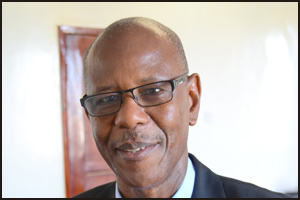
Sierra Leone has a major potential to become a strong and stable economy in West Africa. In your own words, what are the essentials and requirements for Sierra Leone to fully reach its potential as an emerging economy?
Sierra Leone has a deep natural harbour located midway between Europe and South America. Although it has a relatively small population of approximately 7 million in a land area of 71,000 sqkm, there is presently little manufacturing being undertaken. Hence there is ample scope for the country to be used as a manufacturing centre for product distribution in the Sub Region.
The age profile of the country is also advantageous; 42% of the population being less than 15, with 54% aged between 15 and 64.
The disastrous Ebola epidemic has devastated Sierra Leone and had tremendous consequences on the country’s GDP growth in 2014 reaching a -20% low. How did this tragedy affect the country? Is the economy recovering from this tragedy?
The Ebola epidemic had a devastating effect of the private sector. The market for goods other than food and related items virtually disappeared. The service industry was also severely affected, in that major service users, namely, the mining and manufacturing were mostly shut down with little or no production. Schools were also shut down during the period. The economy is slowly recovering from this unforeseen setback.
One of the main objectives of the Agenda For Prosperity (A4P) is to attract and diversify FDI in the country and boost private sector investment, now estimated at only 10% of GDP and mainly concentrated on a few sectors, such as mining. Beyond mining, what sectors do you consider that have the biggest potential for foreign investors?
One of the main opportunities for investment is in industrial scale agriculture. This is a vast, untapped area that can create jobs and address the crucial issue of food security, one of the issues that are facing the country as a whole. Another opportunity is the tourism sector, which, in the past, was a good contributor to the GDP of the country.
The private sector plays a major role in enhancing Sierra Leone’s economy. In your own words, what else should be done to enhance the business climate and position Sierra Leone as an attractive destination for private investment?
Private investment is primarily about a good, sustainable, ‘repatriatable’, bottom line. This is the raison d’etre of any business. Without this, no destination will be attractive for private investment. The other component is low cost, sustainable energy to power the manufacturing machinery.
How can a small economy in the Sub Region become a manufacturing location serving the ECOWAS states?
FEWACCI is promoting a Sealink Project, which seeks to setup a maritime entity with initially three vessels - one container carrier and two bulk cargo/passenger ships. The three vessels would serve all the port in West Africa, starting at Praia, Dakar, Banjul, Bissau, Conakry, Freetown, Monrovia, Abidjan, Accra/ Lomé, Cotonou, Lagos, Douala. This would enable goods manufactured in any one country to be shipped at low cost to markets in other countries. This is not the first such project promoted by FEWACCI. Ecobank and Asky Airlines were also developed in similar fashion.
Coming into existence in 1961, the Chamber of Commerce has played a major role in creating a strong private sector that contributes largely to the overall economy of Sierra Leone. We would like to understand your roles and responsibilities in helping local and international businesses. How can the Chamber of Commerce help Sierra Leone attract more FDIs to the country consequently improving the economy?
SLCCIA’s role is being the trustworthy link between local and international businesses. With an up to date website, containing the relevant information as to what businesses operate in country, their sectors and a brief description of their activities, an effective secretariat to handle enquiries; this will position SLCCIA to be the first point of contact in attracting FDI’s.
The public and private sector has to work synergistically aiming at improving regulations and laws to favor all stakeholders of the economy. How does the Chamber of Commerce work hand in hand with the GoSL to facilitate and ease the framework of setting up a business?
The Chamber makes regular contact with relevant Government Ministries and Agencies to advise the areas of challenges facing the private sector in an effort to alleviate present and potential challenges in the framework of doing business.
The Chamber of Commerce holds a fair every year that gathers local and international companies to come together. Can you elaborate about the purpose of such a fair? What are the implications for Sierra Leone?
The Chamber has held annual Trade Fairs for over 10 years, with the exception of the Ebola epidemic. There have been significant strides over the years, with a regular international contingent from the sub region (Ghana, Mali, The Gambia, Guinea). The trade fair is a hugely popular event that the business community and the general population look forward to each year, with a lively entertainment section. Recently, there has been contact from further afield, China, with potential participation from the Far East. During the last trade fair, Embassy staff from the Liberian Embassy visited to observe and learn with a view to replicate the same in Monrovia.
As the President of the Chamber, what do you consider to be your biggest accomplishment? What is your ambition for the Sierra Leone Private sector?
To see the economy mature from being primarily a trading economy, with less that 5% manufacturing component, to a more balanced economy with around 30% manufacturing and a much larger, profitable agricultural sector. To have the private sector opinion sought after by Government in respect of policies affecting the private sector and the economy as a whole.